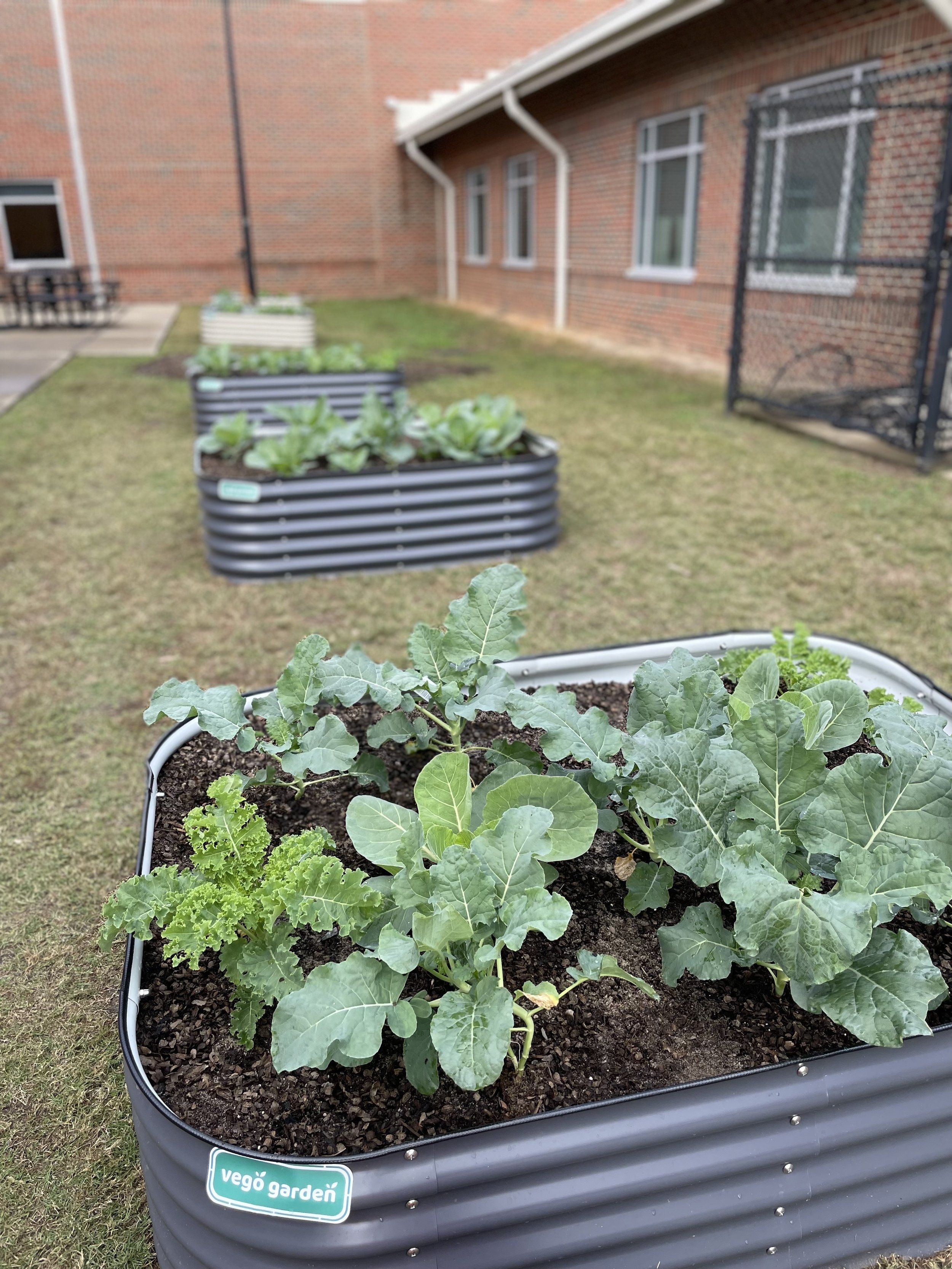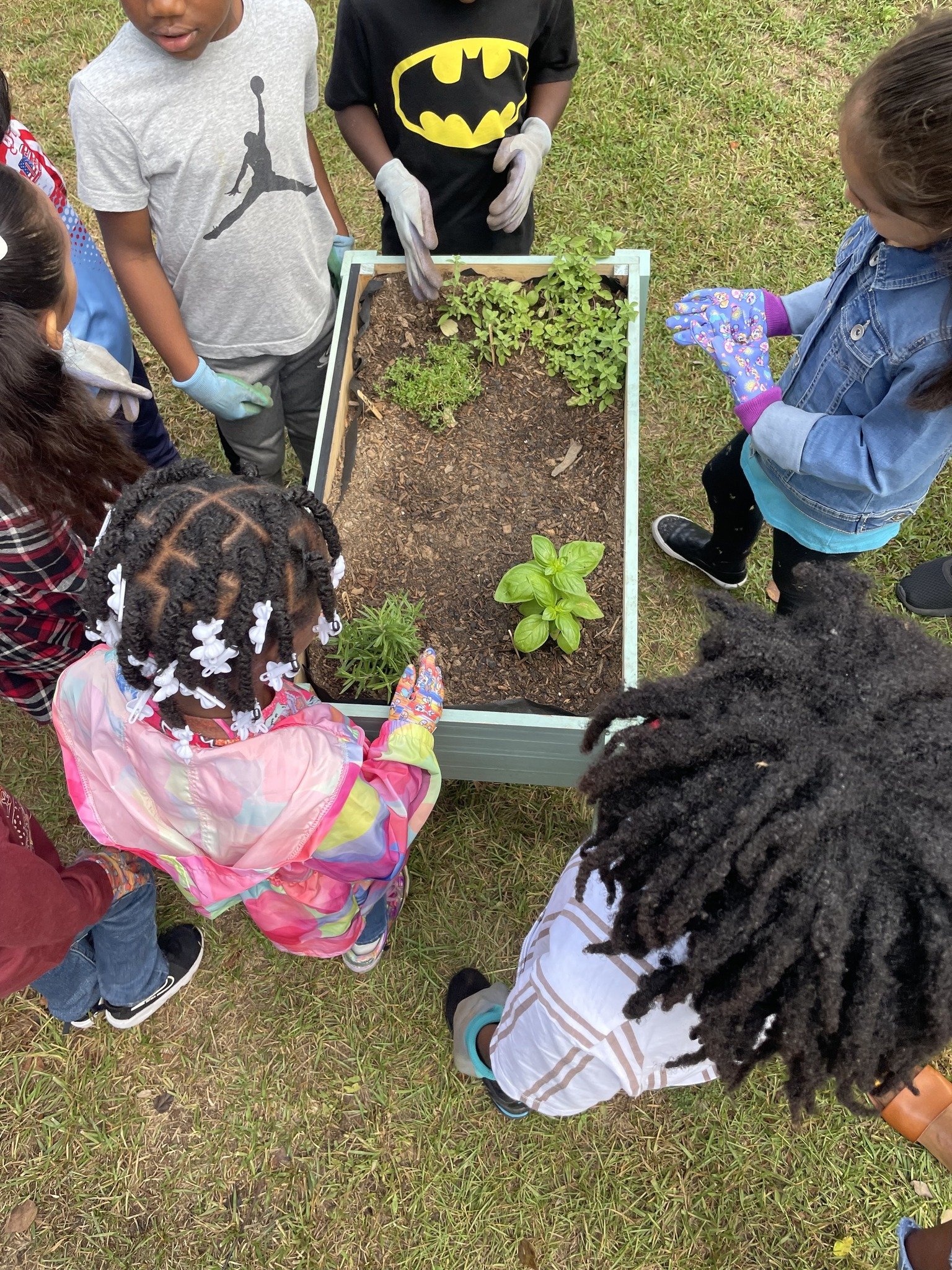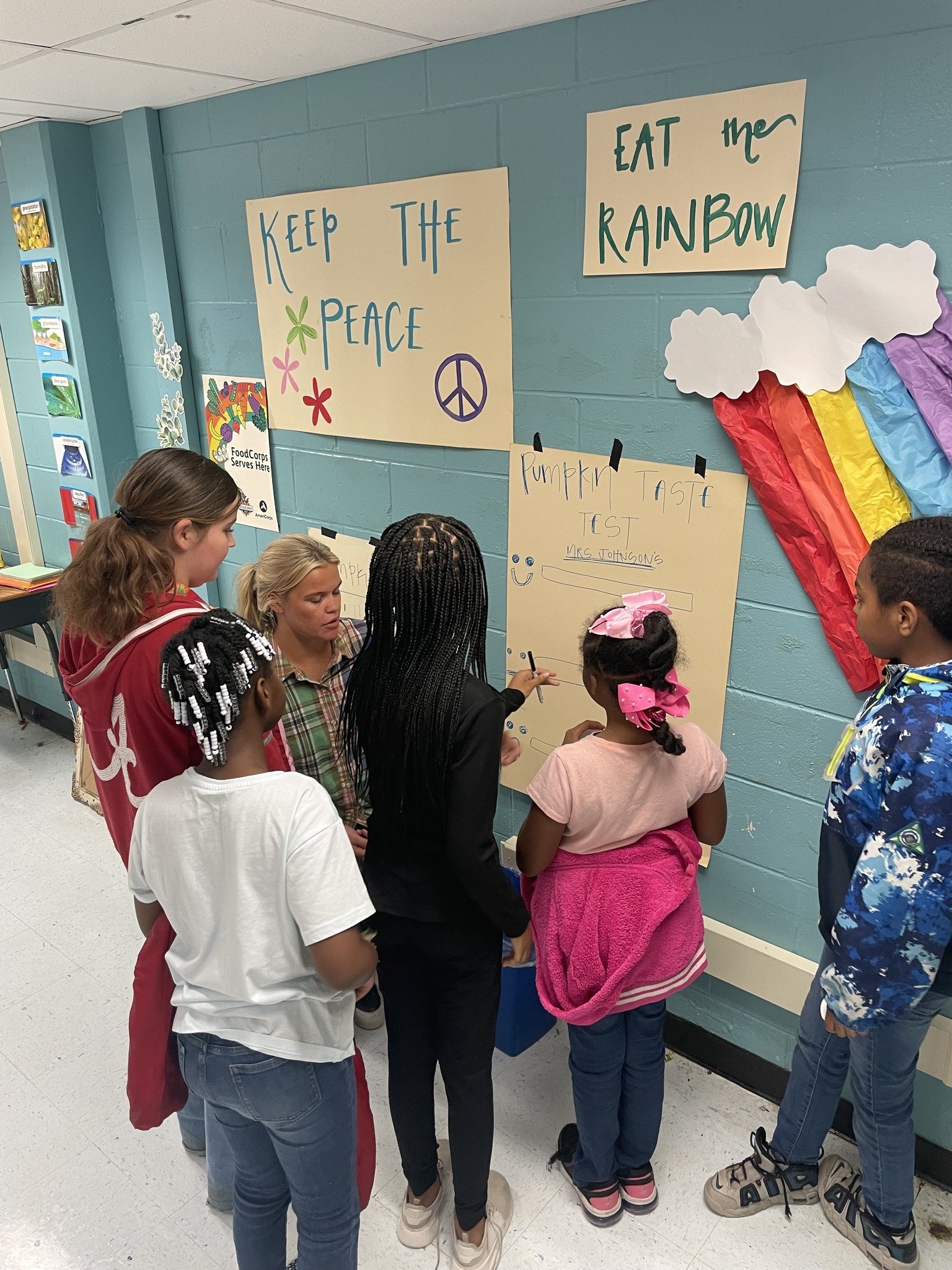
fueling our future growers
through our Farm to School Programs
Our Kids Deserve a Healthy Future.
Part of The Food Mill’s mission is to provide access to fresh food and offer education on how to prepare it. One of our four pillars is to educate through resources on good nutrition habits, growing your own food, and how to cook nourishing food. Through our strong school partnerships, our farm to school programming is the how behind our why.
Empowering Students through Nutrition & Growing Education
The Food Mill farm-to-school programs work to prevent diet-related illnesses through education exposure to nutrition and hands-on growing food education. Each partner has a dedicated farm-to-school educator and an on-site garden, serving as a living classroom. We cultivate curiosity and awareness around gardens, farming, and wholesome food choices through thoughtful lesson plans, enticing taste tests, and cafeteria conversations.
We partner with schools, nonprofit organizations, and communities to nourish kids’ health, education, and sense of belonging. Our educators seek to take the workload off the principal, teachers and administration, using our staff, to do the heavy lifting to make farm-to-school programming successful and sustainable for the long term.
On average 84% of students receive either free or reduced-price lunches in several of our schools, relative to 77% nationwide. Muscogee County is over 80% and higher than the state’s average of 62%. This is a drastic increase from just 37% in 2015 according to the Piedmont Community Health Needs Assessment, indicating an increase in poverty and food instability in our city.
Farm to School Impact
It has been proven that Farm to school programming has a positive impact on students' eating habits when our education is implemented. According to the American Heart Association, what a child eats from birth up until age 13 directly impacts their chances of developing heart disease later in life. Even if habits change to healthier ones as an adult the risk of heart disease can increase significantly if a child has poor eating habits early in life. Early prevention and exposure matters!

In 2023 alone, our farm-to-school programming has already taught growing and nutrition education to 1,368 students, presented 138 class lessons, 163 hours teaching class, 222 hours in the school garden, and 106 hours in the cafeteria this school year.
Thanks, Vego Garden!
We are so grateful to Vego Garden for donating FIVE raised garden beds to our
Farm to School Program at Dorothy Height Elementary School. Because of their generosity, our students at Dorothy Height Elementary School are able to put their farming skills to work. Our students take great pride in growing, and we’re honored to come alongside them and help cultivate a passion for growing and healthy eating.



